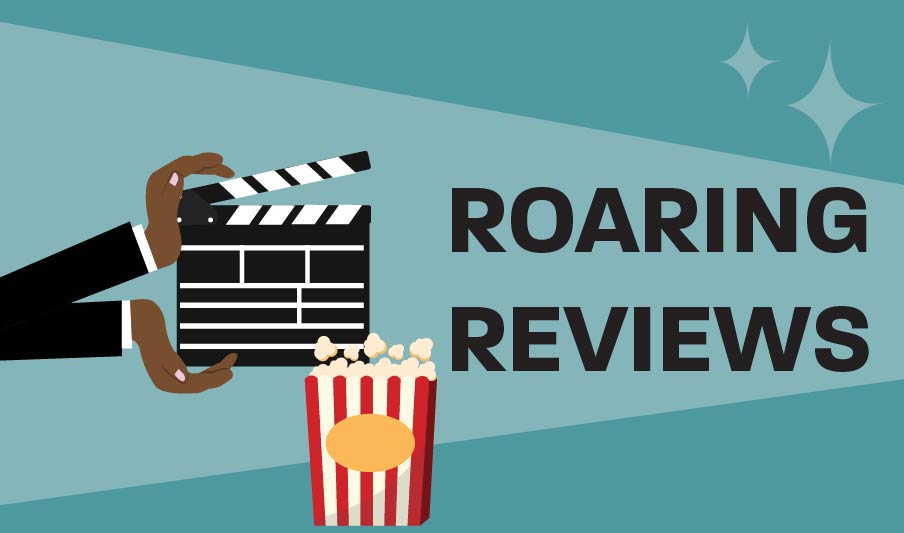
Marvel deep dives on race-related issues in “The Falcon and the Winter Soldier”
By: Ben Strigle, Columnist
Views expressed in opinion columns are the author’s own.
★★★★☆ 4/5
“The Falcon and the Winter Soldier,” reunites viewers with Sam Wilson, Falcon, played by Anthony Mackie and James “Bucky” Barnes, the Winter Soldier, played by Sebastian Stan as they embark on a buddy-cop-style global adventure.
After the release of 2019’s “Avengers: Endgame,” fans of the Marvel Cinematic Universe (MCU) had one question: “Where does Marvel go from here?” The answer to this question? Television.
At a base level, “The Falcon and the Winter Soldier,” created and written by Malcolm Spellman and directed by Kari Skogland, is a fun and compelling espionage story. Mackie and Stan have absolutely terrific chemistry, on and off-screen; the actors clearly have lots of fun working with each other and it really shows at many points throughout the series.
The duo also runs into fan-favorite characters like Sharon Carter, played by Emily VanCamp, an old friend of Steve Rogers, and Helmut Zemo, played by Daniel Brühl, the mastermind behind the events of “Captain America: Civil War.” It’s particularly fun to see Brühl back in the role of Zemo – the show’s format allows him to show off a new side to his character that we didn’t have time to see before.
Also returning is composer Henry Jackman, whose thrilling score provides the backdrop for the onscreen action, which is also phenomenal (as expected from Marvel at this point). One particular moment during the fifth episode is quickly becoming one of my favorite fight scenes in the MCU.
The best thing about this show, in my opinion, was its willingness to unflinchingly tackle social issues including racism and government mistreatment of veterans. Sam was given Steve Rogers’ shield in “Endgame,” but he gives it up because he believes that people will never accept a Black man as Captain America.
His fears are personified by Isaiah Bradley, played by Carl Lumbly, a Korean War vet and figure from Bucky’s past who, for reasons I won’t spoil here, is completely disillusioned with the idea of a government that looks out for him. It was very interesting watching Sam come to terms with these issues as the series progressed.
Coming into this show, I expected another action-heavy superhero slugfest, and nothing more. I was proven so wrong. Previously, Marvel rarely delved into the concept of racism this deeply, and the final product is at times tear-jerking and at others enraging, but overall very well-executed.
Another new character, John Walker, played by Wyatt Russell, is one of the most interesting Marvel characters in recent years, in my opinion. Walker is an ex-soldier. He struggles with PTSD, and as viewers learn, there’s only so much he can take before he breaks. His arc was one of the most interesting parts of the show to me.
My biggest problem with the show was its villain (or villains). The concept of the “Flag Smashers” is interesting on its own. “Flag Smashers” are people who were displaced from their homes when half of the universe’s population was brought back following the events of “Endgame.” They want to be seen by a government who doesn’t care for them.
This is the perfect foundation for a sympathetic villain character, similar to “Black Panther” villain Erik Killmonger. But the Flag Smashers suffer from a big problem: Karli Morgenthau, played by Erin Kellyman. Morgenthau, their leader, is fine with killing innocent people to achieve her goals. This wouldn’t be too big of a character issue if the writers didn’t try to garner sympathy for Morgenthau later in the show.
Legacy is a hugely important theme in “The Falcon and the Winter Soldier.” Sam is concerned about what Captain America means to the American public, and if they will ever accept him in that role, and Bucky, haunted by his past as the Winter Soldier, wants to make things right with the people he’s wronged. Legacy ties every character in the show together. Everyone’s perspective can be understood, and that’s what makes the show so interesting.
I was surprised by how much I enjoyed “The Falcon and the Winter Soldier.” In 5 hours of runtime, Marvel was able to begin and resolve a layered, emotional, and socially relevant story wonderfully. If shows like this are Marvel’s future, I’m so excited to see what comes next.


Apoiar ferramentas de apostas e estar equipado com uma plataforma diversificada de transações financeiras, a 20Bet oferece suporte tangível aos jogadores. Este é um lugar onde eles podem apostar com dinheiro real, respaldados por concorrentes de diversas disciplinas esportivas. 20bet
Your article helped me a lot, is there any more related content? Thanks! https://www.binance.com/ph/join?ref=IJFGOAID
In The Falcon and the Winter Soldier, viewers are immersed in deep issues of racial inequality. Intertwined with this is the equipment of US soldiers. The film highlights the importance of adapting to challenging environments, much like how the US military’s equipment (which you can read more about in article https://www.agmglobalvision.com/us-soldier-equipment-part-3 ) adapts to different combat scenarios. In this way, an examination of race in film is combined with a review of modern military equipment, highlighting the need for adaptation in different aspects of our lives.
this is very interesting for me